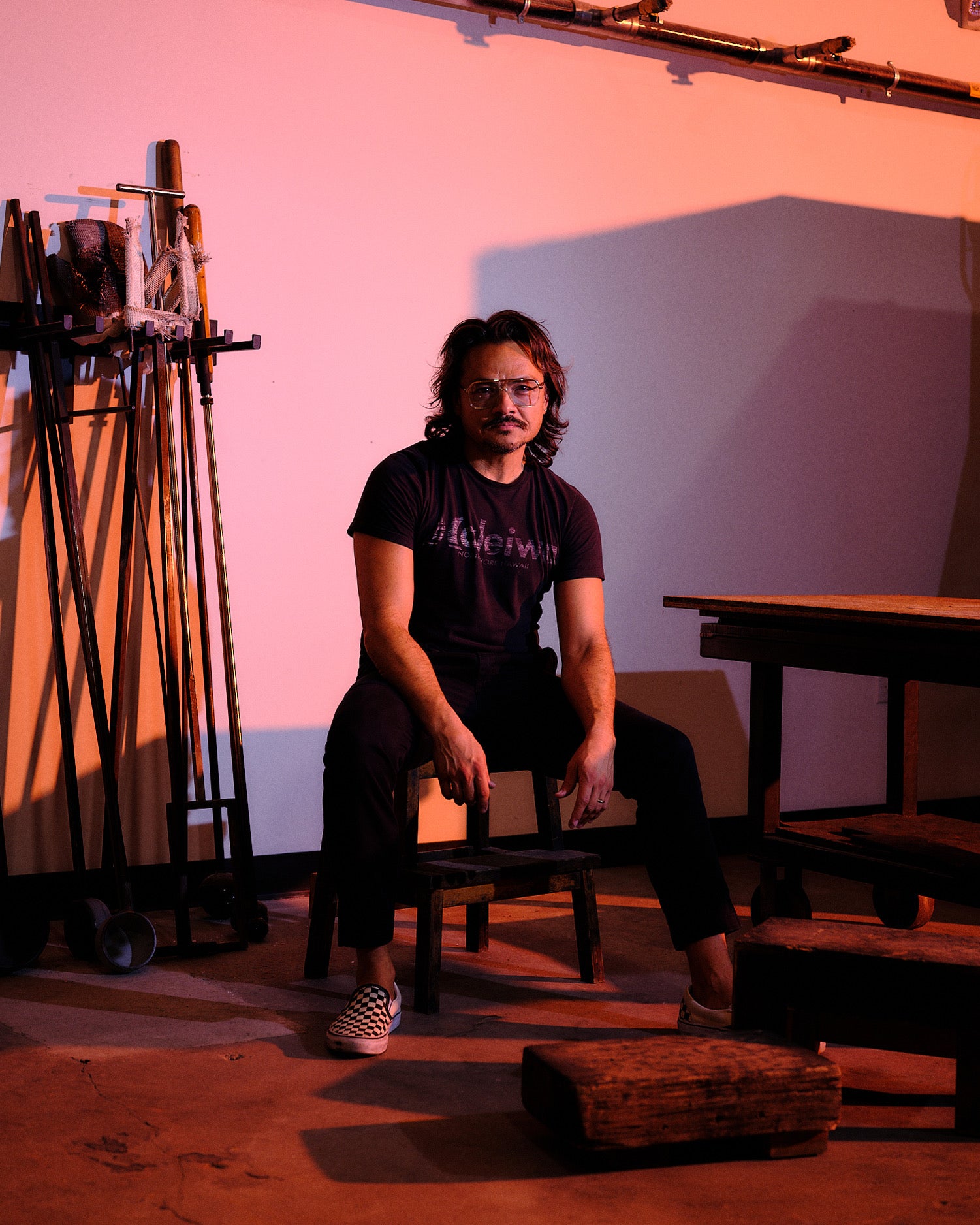In high school, John Pomp wasn’t a great student. In fact, he was terrible, and barely graduated. But he had something better than a 4.0 GPA: an art teacher who inspired him to indulge his creative side. The same teacher pushed Pomp to consider a glassblowing class in college, despite his plans to become a painter. “I was not really that interested in being there,” he tells host Dennis Scully on the latest episode of The Business of Home Podcast. “But I grabbed the pipe because it was my turn, and reached into the furnace and scooped [the molten glass] up like honey. And that moment defined the rest of my life.”
Today, Pomp is known in the design world for his eponymous line of lighting and furniture produced from a cavernous workshop in Philadelphia. Not all of it is glass, and Pomp no longer fabricates every item alone like he did in the early days, but the company is very much built around a core philosophy he developed in his youth.
“I’m from a working class town, working class family. My father [would tell me]: What you say is your word, and you do as you say,” he says. “I think I’ve also just been wired to crave responsibility, and I think that in the long term it's really about responsibility. I’m responsible for that nut and bolt. I’m responsible for those pieces and parts. I’m responsible for my team. I crave that kind of control.”
That quest for self-reliance has certainly been difficult, involving no shortage of maxed-out credit cards and sleepless nights. Pomp originally started his business in Williamsburg, Brooklyn. When rents there started getting out of control, he wanted to buy a building so he could control costs—which entailed moving to Philadelphia and sleeping on the floor of his new workshop for months. (Pomp and his girlfriend did their cooking on a barbeque grill they set up in a corner of the facility.)
It’s paid off in the long run, especially in the midst of the supply chain crisis wrought by the pandemic. When others struggle to source screws, nuts and bolts from faraway factories, Pomp makes them in-house. “We’re making all of our pieces, from raw to materials to finished goods, under this roof, which is a huge advantage,” he says. “We have a machine shop, a sheet metal shop, we make all of our glass, we have a wood shop, we do our own leather processing. Everything is done here—I rely on nobody.”
Listen to the show below. If you like what you hear, subscribe on Apple Podcasts or Spotify. This episode was sponsored by High Point Market and Modern Matter.
Homepage photo: John Pomp | Courtesy of John Pomp





























